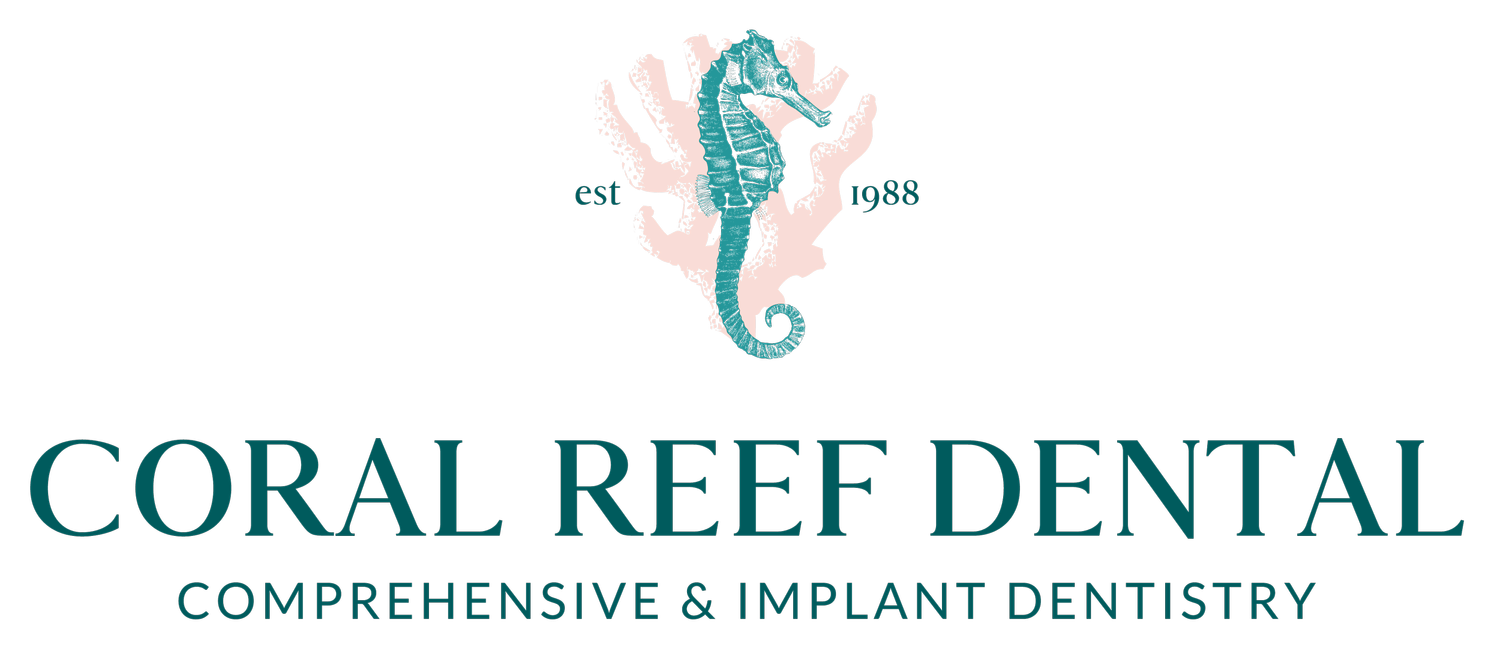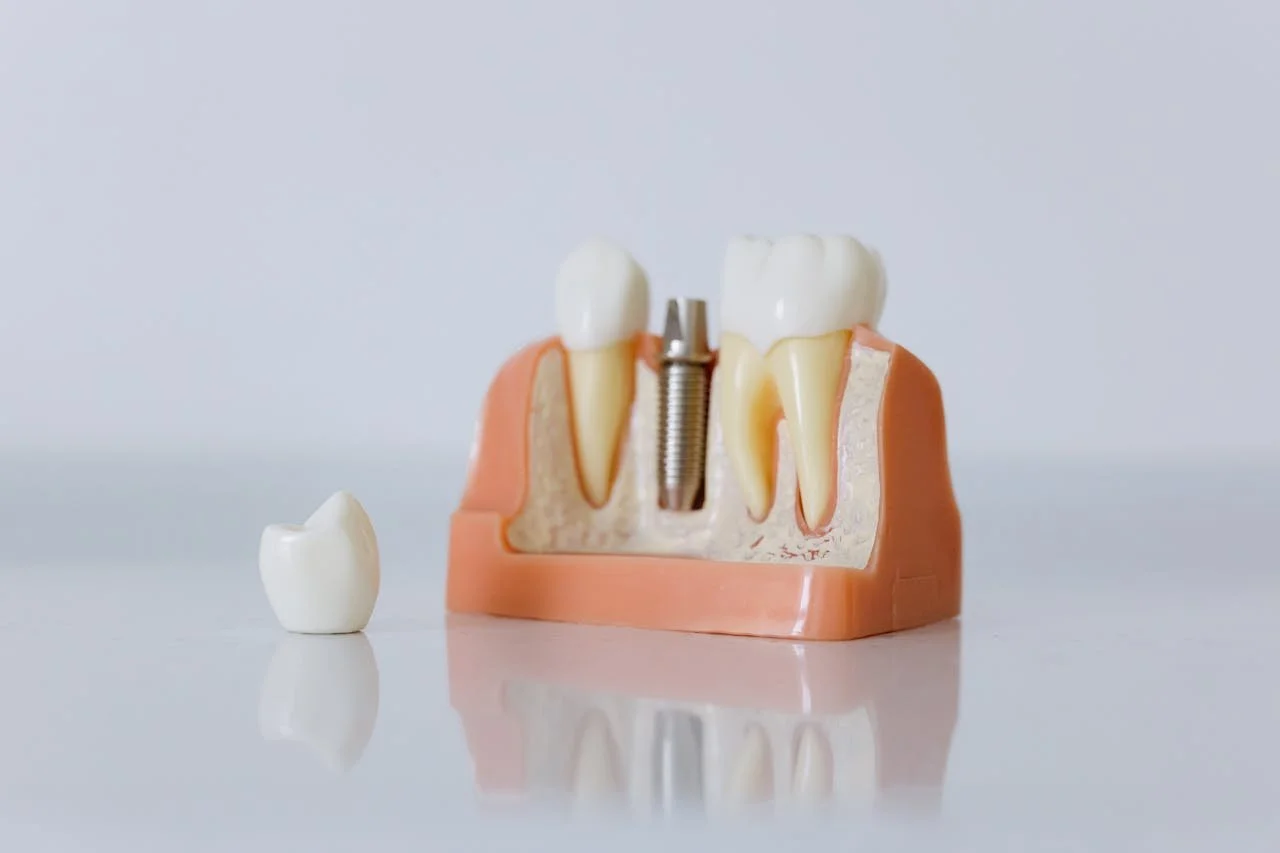Do Dental Implants Hurt?
Anxiety about dental work is very common, especially when it comes to invasive procedures like dental implant surgeries. It’s only natural to wonder if dental implants will hurt. Today, we’ll walk you through the process so you know exactly what to expect before, during, and after your procedure.
What should you expect from dental implant surgery?
Dental implant surgery is performed to replace a missing tooth or teeth. It may take place immediately after an extraction or even years after losing a tooth. As long as there’s enough healthy bone and gum tissue, your provider should be able to place a permanent tooth. If the jaw is not structurally sound, a bone graft may be required before an implant can be placed.
Before dental implant surgery
Before your dental implant procedure, your dentist or oral surgeon will examine your mouth, take X-rays or 3D scans, and review your medical history. They will go over any pre-surgery instructions and discuss your anesthesia plan. While most dental implants are performed with only local anesthesia, some patients prefer sedation that’s administered in IV form, oral medication, or inhaled gas.
Sedation dentistry is a great option for those with anxiety about the process or patients receiving multiple implants at once. Just remember that you’ll need to fast before the procedure and may require a more in-depth pre-surgical evaluation.
During your procedure
On the day of your surgical procedure, your dentist will numb the area with local anesthetic. This shouldn’t be painful. Instead, you should only feel pressure and a quick pinch when the needle enters your gum. If you choose sedation, this may be the only portion of your implant placement that you remember, as you’ll be put under after the local anesthesia takes effect.
Patients who remain conscious during the procedure won’t feel anything as the dentist makes a small incision in the gum, drills a tiny hole in the jawbone, and places the implant post. The incision will be closed with stitches to allow for osseointegration, the process in which the jawbone fuses to the post.
Side effects following surgery
As you wait for your permanent crown, the natural tissues in your jawbone will integrate with your implant, creating a solid foundation for your replacement tooth. During this time, you may experience mild to moderate swelling, soreness, and bruising.
Related: What Is a Bruised Tooth and How Is It Treated?
How painful are dental implants?
So, what about the big question: do dental implants hurt? Let’s explore how your pain levels may fluctuate throughout the procedure and the healing process:
During the procedure
Whether you choose full sedation or local anesthesia, it should not hurt to receive dental implants. Both options are highly effective at blocking pain signals to the brain, so you don’t feel anything other than pressure during the procedure.
However, some people find the pressure, vibrations, and sound of the drill stomach-churning. In these cases, full sedation can ensure your physical comfort and mental and emotional well-being.
Post-surgery pain
Most patients report some degree of discomfort beginning four to eight hours after surgery as the numbing agent wears off. You may feel a dull, achy pain at the implant site and tenderness in your jaw. It’s uncomfortable, but shouldn’t be excruciating.
That being said, you may experience a higher level of pain if your procedure included bone grafting. In the days after your implant placement, take over-the-counter pain medications, apply cool compresses for swelling, and be sure to rest and stick to soft foods.
How long does post-surgery pain last?
Here’s a general timeline of the dental implant recovery process:
Days 1-2: This is when swelling and tenderness peak, and dental implants do tend to hurt.
Days 3-5: Swelling and pain should begin to diminish.
Day 7: Most people are back to normal one week post-implant surgery, but some lingering soreness is not unusual.
2+ weeks: Once you reach the two-week mark, your gum healing should be well underway and your jawbone should be painlessly integrating with your implant.
Read more: Dental Implants vs Dentures: How To Choose
What to watch out for after your dental implant surgery
In rare cases, complications may emerge following dental implant surgery. Remember, with OTC medication and adequate rest, dental implants shouldn’t really hurt. Instead, they should feel a little uncomfortable. Here are a few red flags to monitor for as you heal:
Increased pain
If your pain level increases in the days after implant placement, reach out to your doctor. They may need to examine you for signs of infection and other complications before adjusting your treatment plan.
Extreme swelling or fever
Mild to moderate swelling should peak around the 48-hour mark, then begin to subside. If swelling spreads or you spike a fever over 101 degrees F, your body may be fighting an infection.
Signs of infection
In addition to increased pain levels and swelling that gets worse, other signs of infection include:
Pus or discharge with a nasty taste
Foul breath that doesn’t improve with cleaning
A persistent bad taste in your mouth
Red, hot skin, especially around the surgical site
If you suspect an infection is taking root in your mouth, reach out to your dentist or oral surgeon right away to minimize adverse health effects.
Loose implant
Even before the osseointegration process is complete, your new implant should feel secure in your mouth. A wobbly implant that moves when you touch it could mean that it’s failed to integrate and may require another procedure. Don’t hesitate to call your dentist at the first sign of movement.
Read more: Loose Tooth? Causes, Treatments, and Prevention
Explore your options and restore your smile at Coral Reef!
Ready to restore your dazzling smile with dental implants? The team at Coral Reef Dental is here to help! Reach out today to learn more about your options.


